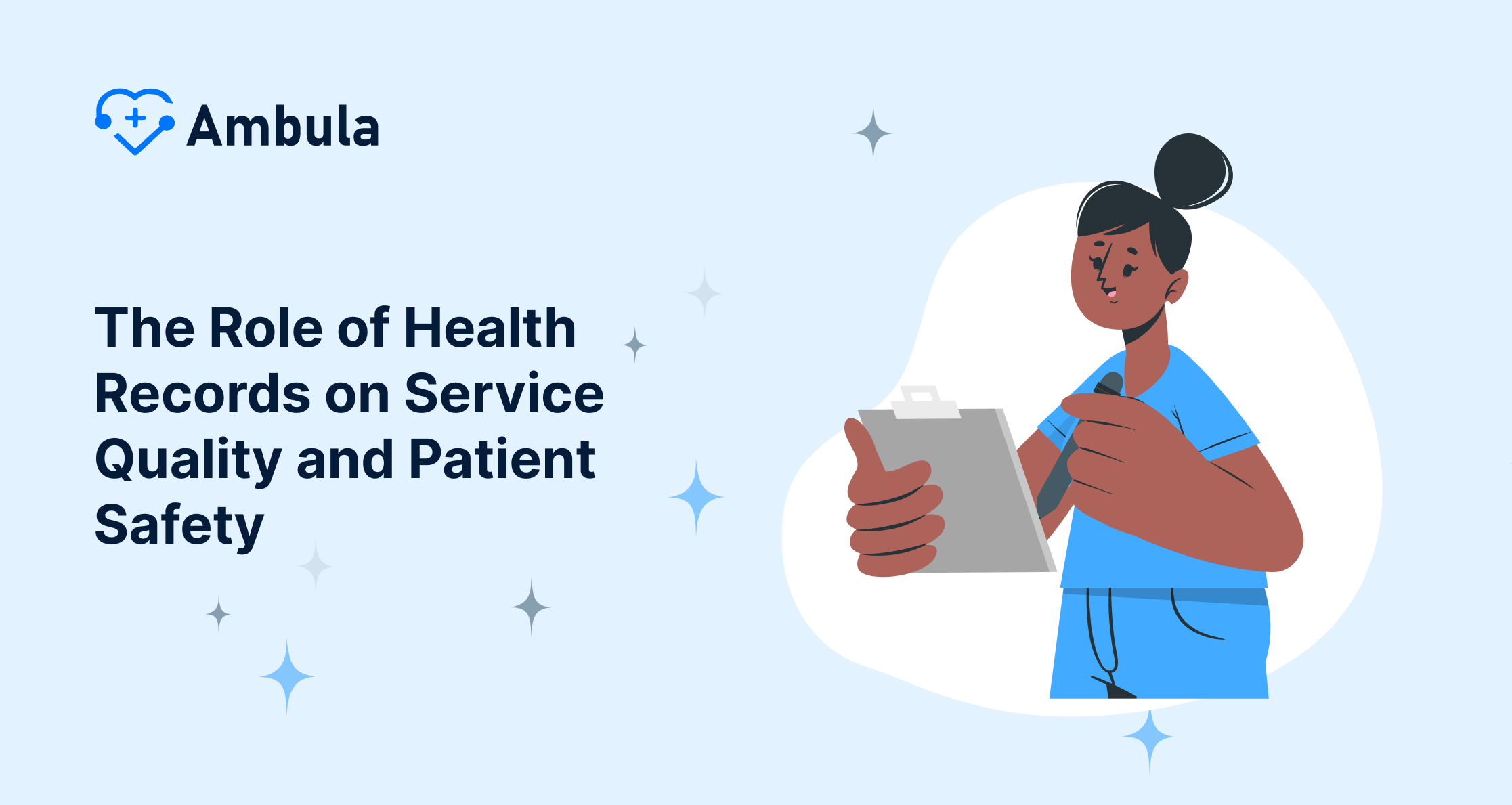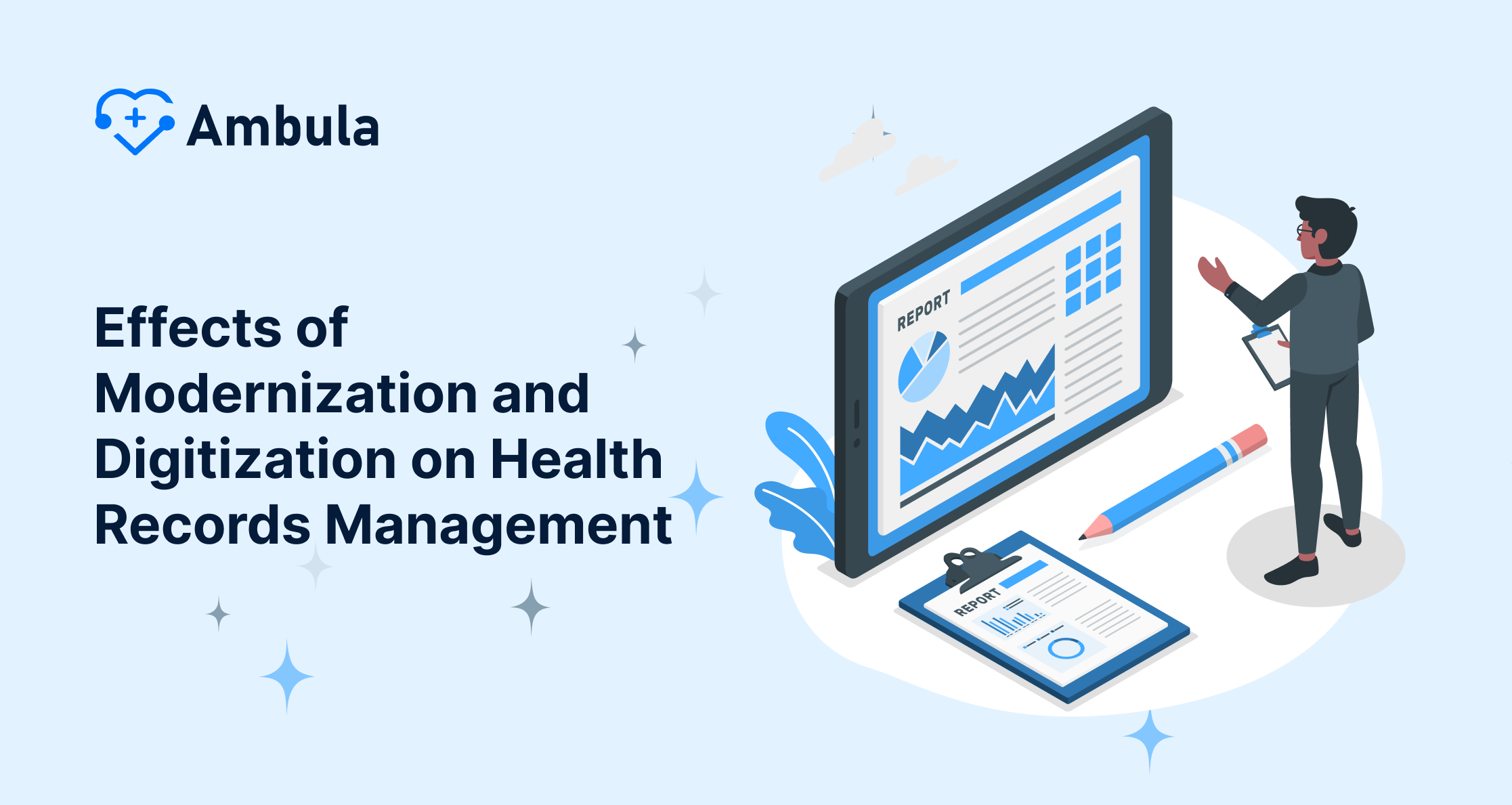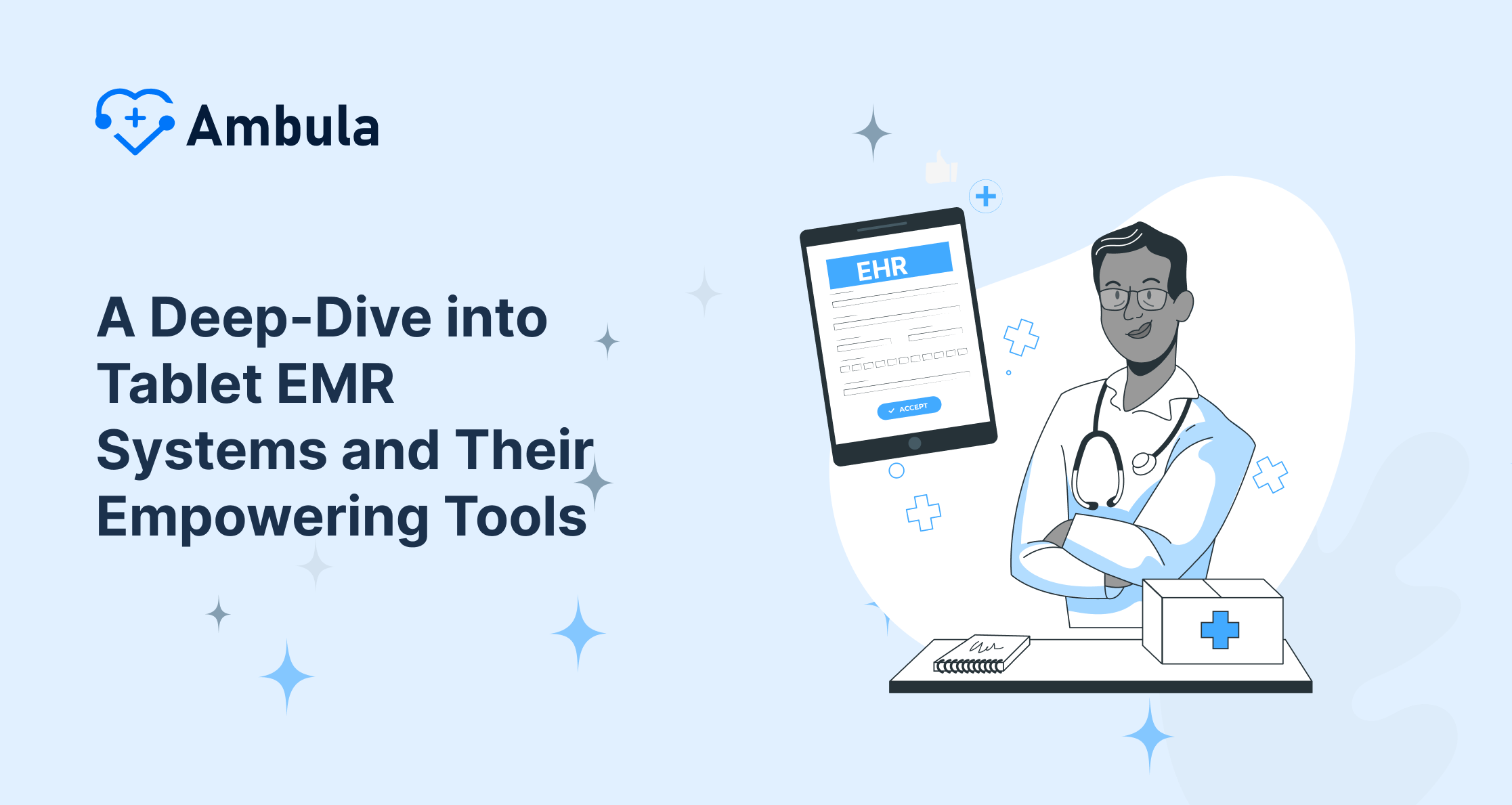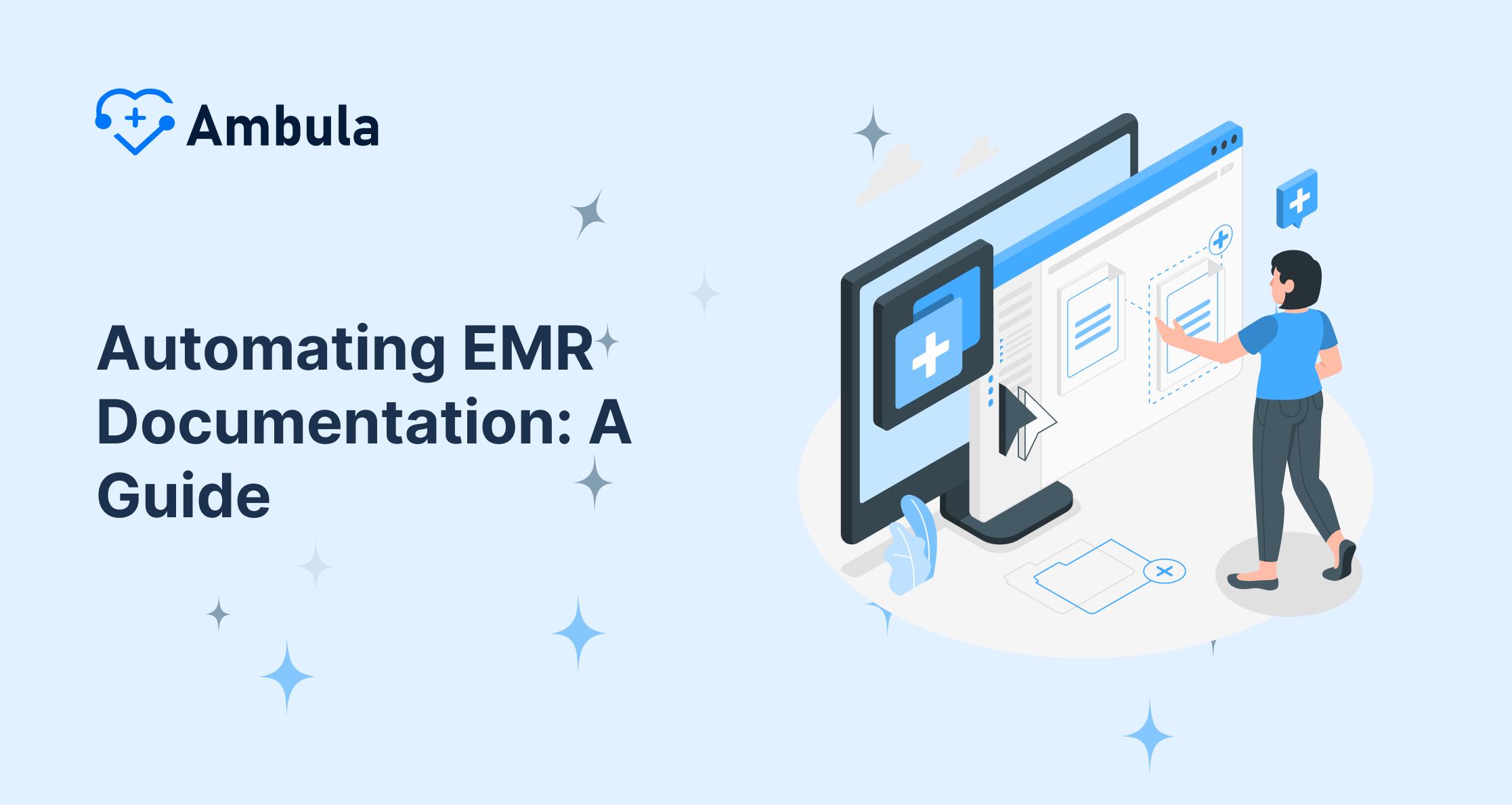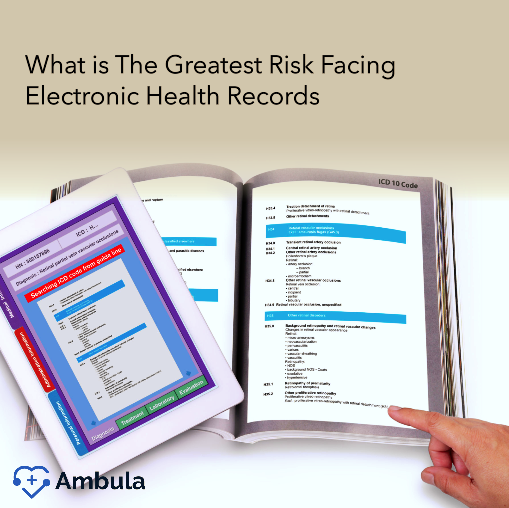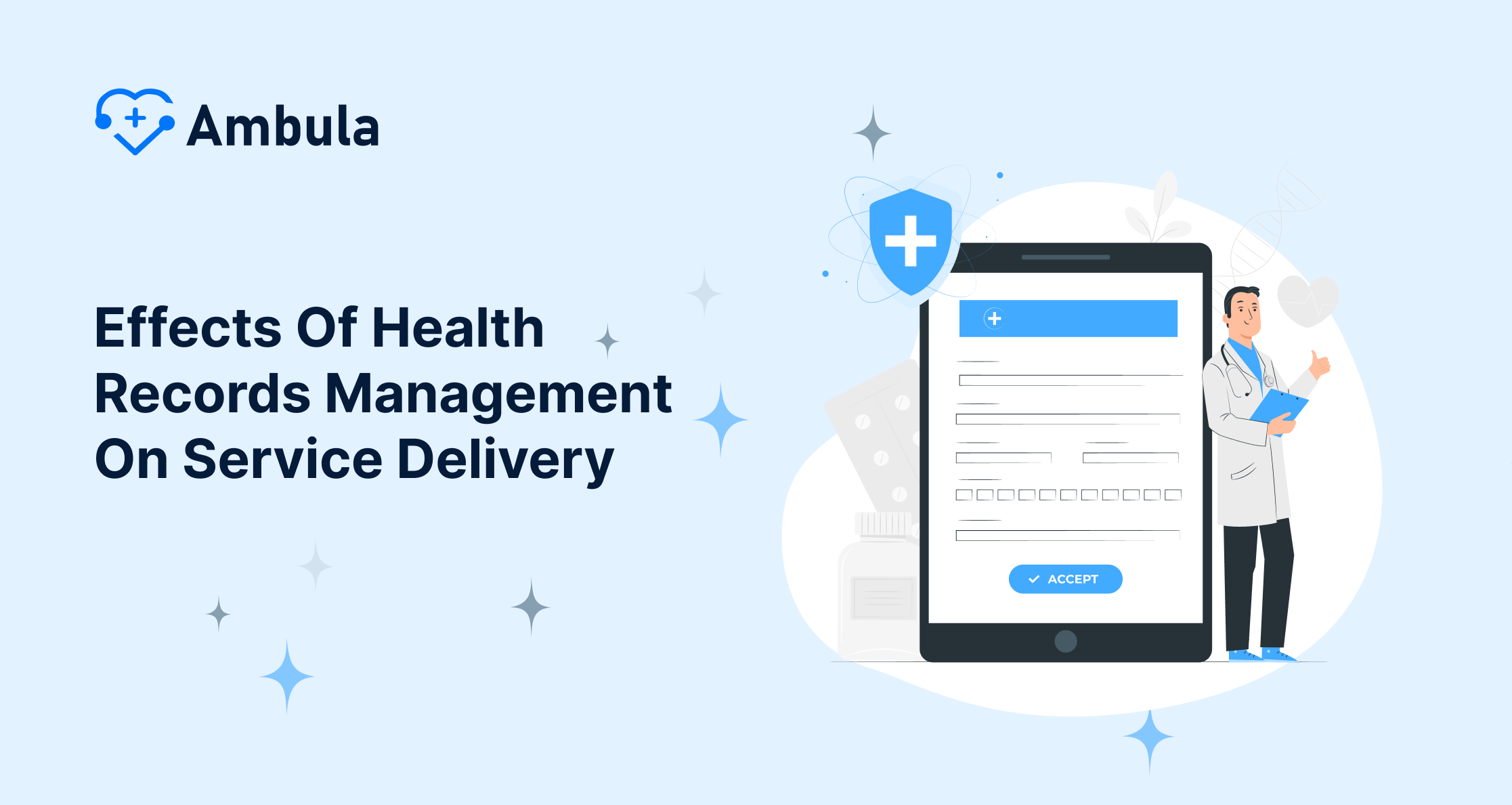
Jump into this read and get the lowdown on managing medical records and why it’s super important for top-notch patient treatment. We’re gonna showcase how going digital is a big deal for this area – it’s all about keeping patients safe and happy. With some actual examples from the real world, you’ll grasp the serious stuff like laws and getting in trouble for medical screw-ups, and also get a glimpse at what’s coming next that might flip healthcare on its head. Prepare for a brief journey into the crucial world of health records management!
Importance of Health Records in the Healthcare Industry
Health records ain’t just some old files about patients – they’re super crucial for the medical world. These babies are stacked with all the details you need to make smart choices in treating folks, ensuring you deliver spot-on, custom care while still keeping things hush-hush and respecting the peeps’ rights. Proper handling of patient records ain’t just about digging into their past, it’s also about looking ahead with stuff like foreseeing health probs and blocking them before they start in clinics.
So, when you’re thinking about health records, picture a complex web of info that helps out big time with making sure care services are all working together. These records are like secret messengers for doctors and nurses making sure they’re all on the same page when making crucial health calls and giving them the deets they need, like shout-outs to other docs and notes on when patients bounce out of the hospital. When the info zooms around without any hitches, patients get better faster and dig the way they’re treated way more.
Important numbers highlight health records’ importance. Research from HealthIT.gov found that three-quarters of medical pros saw that using their electronic health record (EHR) system let them give improved care to patients. This kind of statement puts a spotlight on the big part health records play in providing services and keeping patients healthy.
Plus, these records help with research and making new stuff in the field. They’re super useful for digging into data pushing medical wisdom forward, and making health tech better all while sticking to rules about keeping documents and keeping data safe.
The Role of Health Records on Service Quality and Patient Safety
Efficient health records management systems are the key to good healthcare service and keeping patients safe. Dig into this and you’ll spot the mark of full, correct, and trustworthy health records on the whole service quality.
Imagine trying to treat patients with old or wrong records. Spooky, huh? The main job of health records is to make sure medicine is safe, to cut down on wrong treatments, and to improve ongoing care. The bigger the contribution of -handled health records the smaller the chance for mistakes in patient care and doctor screw-ups.
The World Health Organization makes it clear that using electronic health records (EHRs) helps cut down on medical mistakes in a big way. Research backs it up, finding medication errors dropped by 40% once EHRs got in the mix. No doubt when health records are crystal-clear, spot-on, and fresh outta the oven, it makes sure patients stay outta harm’s way.
These digital records do more than just keep blunders at bay; they’re ace at getting docs and nurses on the same page too. Imagine everyone’s got the latest scoop on a patient, ready to rock at their fingertips. It’s like everyone’s brain is synced up, avoiding those all-too-familiar hiccups that come from wires getting crossed in patient info.
Good health care means not giving the right treatment but also doing it quick. When you’ve got health records handy, it cuts down how long it takes to respond by letting you see super important patient info right away. This makes things better for patient care and makes the whole process more efficient.
To emphasize skilled handling of health records does wonders for both how good the service is and keeping patients safe. It gives you solid control over cutting mistakes, making sure people talk better, and giving care when it’s needed. All of these are super important for keeping patients safe and making sure the health care service is top-notch. Plus, if you’re managing your records right, they can save your skin by having all the evidence you need if you end up in court or some legal mess.
Effects of Modernization and Digitization on Health Records Management
Healthcare records got a tech upgrade when paper-based systems went outta style. Now, we have stuff like electronic health records (EHRs), smartphone apps, and stuff on the cloud that has changed how we keep records. This shift kicked off a huge change, giving folks a better handle on important patient information.
So, what’s the big deal about going digital? Massive. Think about this: walking into a spot with piles of paper everywhere or just clicking around to get info? Yeah, EHRs make things like grabbing data, handing it over to others, tweaking it way faster, and ramping up how we help patients. HealthIT.gov published a study that says that a whopping 94% of medical people find their EHRs make getting hold of records super simple. That shows the huge change in how we do health stuff thanks to electronic records.
But digital transformation isn’t just about speed. It adds another layer of precision to health records management. With EHRs, errors due to illegible handwriting or lost files are eliminated, ensuring the accuracy of patient data.
Frameshifts in technology, such as artificial intelligence and machine learning, have injected intelligence into health records management. These advancements can analyze and interpret vast data, helping you identify patterns that could contribute to proactive patient care.
Integration is another significant stride in digital health records. EHRs can be linked to laboratory systems, pharmacy networks, and wearable health devices. This connectivity could offer a comprehensive view of a patient’s health status, promising seamless coordination among healthcare professionals.
The Relationship Between Efficient Health Records Management and Improved Patient Satisfaction
Quickly getting to patient info is what efficient health records do best. Nobody’s a fan of hanging around waiting, right? When you can grab data without a hitch, you make treatment choices quick, which means less waiting and happier patients.
Making sure everything’s spot on in health records is super important too. When you’ve got the latest and right-on-target patient info, you can give care that’s tailored for them—no more redoing tests or goofing up with the wrong treatments. It gives your patients peace of mind knowing they’re taken care of, and the medical certs they get are the real deal.
Care continuity is a big deal for a patient’s medical adventure. When we’ve got health records that show the whole story of a patient’s past, keeping that continuity is a breeze. It helps when there’s more than one doc taking care of someone. ‘Cause of this, patients get to feel like they matter, like people are listening and giving them attention, and that cranks up how happy they are.
Okay, so talking about managing health records and how it has an influence on setting up doctor visits. If you tap into electronic health records, they can handle sending out reminder buzzes about appointments, sorting out new times if needed, and touching base afterward. Making sure that setting up visits goes without a hitch can knock out a few of the usual headaches that patients deal with, making them feel pretty good about the whole thing.
To emphasize, managing health records well is crucial to making patients happy. It’s more than just background stuff—it’s a power player speeding up top-notch care and making folks happy with their health trips. This is your hidden ace to make the patient experience better and create strong trust bonds with your patients.
Impacts of Health Records Mismanagement on the Delivery of Services
Incomplete medical records can have far-reaching consequences for both patients and healthcare providers. Here’s a breakdown of the potential impacts:
For patients:
- Misdiagnosis and improper treatment: Without a complete picture of your health history, including allergies, medications, and past conditions, doctors may struggle to reach an accurate diagnosis. This can lead to inappropriate treatment plans, potentially delaying effective care or even causing harm.
- Compromised patient safety: Missing information can increase the risk of medication errors, duplicate tests, or overlooking crucial details that could impact your safety during procedures or treatment.
- Delayed care: Gathering additional information to fill in the gaps can slow down diagnosis and treatment, potentially delaying necessary interventions.
- Reduced access to care: Incomplete records may create confusion or uncertainty for new healthcare providers, potentially hindering their ability to effectively manage your care or even leading to denied services.
- Financial burden: Incomplete records can complicate insurance claims and lead to denials, leaving patients responsible for uncovered costs.
Accuracy can take a serious hit with poor health records management. Outdated or wrongly entered data might lead to dangerous medical errors. Even small errors have big impacts – according to a Johns Hopkins study, medical errors are the third leading cause of death in the U.S, with many errors originating from incorrect or incomplete patient data.
Remember, the ripples of health records mismanagement can also impact patient satisfaction deeply. Imagine a patient returning for a routine check-up, and you stumble with their medical history. The inconvenience and mistrust that arise can deter patients from returning.
To sum it up, effective health records management isn’t just a nice-to-have; it’s essential. The impacts of mismanaged records underscore the importance of investing resources into organized, secure, and efficient health records management systems. Steer clear of the slippery slope, and you’ll safeguard service delivery and patient trust effectively.
Real Life Case Studies: Successes and Failures in Health Records Management
Let’s get real and explore a few living examples that mark the success and downfalls in health records management.
Taking the lead with a success story, the Mayo Clinic is a prime example of effective health records management. Optimizing EHRs they substantially empowered their patient care. A study reveals a 50% drop in delays and a 7% boost in working hours for doctors. Efficient records management drove this clinic’s productivity, significantly enhancing patient satisfaction.
On the flip side, the Veterans Health Administration faced severe backlash due to errors in managing health records. In a glaring incident in 2009, the institute temporarily shut down surgeries due to inconsistencies in sterilization processes from incomplete records. This unfortunate stumble illuminated the immediate and dangerous consequences of health records mismanagement.
Now, let’s look at how Indiana University Health turned the tables. Starting with a disorganized paper-based system leading to delays and inaccuracies, the hospital invested in digitizing its health records. Moving into a unified EHR system, they saw a 50% drop in adverse drug events, certifying the transforming power of effective health records management.
Turning to the University of California, a breach of digital health records due to inadequate security measures led to a $1.14 million settlement in 2013. An unfortunate reminder that efficient health records management isn’t just about organization but also about security.
In a nutshell, real-world examples shed light on health records management’s vital role. While success stories inspire, the failures render an invaluable lesson: effective health records management is not an option but a requisite, shaping the journey of patient care in significant ways.
Future Trends and Innovations in Health Records Management and their Potential Impact on Service Delivery
What does the future hold for health records management? An explosion of innovation and trends promises to reshape the contours of service delivery in the healthcare industry.
First up, let’s talk about artificial intelligence (AI). AI is revolutionizing health records management by auto-analyzing and interpreting patient data. It sets the stage for predictive care, enabling you to identify risk factors and intervene early, improving patient outcomes significantly.
Blockchain technology is no longer confined to cryptocurrencies. Its applications in creating tamper-proof, decentralized health records are resourceful. This exceptional security can reassure patients about their data privacy and build trust, which is essential for effective service delivery.
Telehealth is another trend shaping the future. Integrating EHRs with telehealth platforms will be vital as healthcare leans towards remote consultations. Offering rapid access to patient history during virtual consultations can ensure a smooth, effective process, contributing positively to patient satisfaction.
Imagine having instantaneous access to complete patient health records, irrespective of location or healthcare provider. Interoperability, or seamless exchange of health information between systems, is set to be a game-changer. It will strengthen coordinated care and streamline the healthcare continuum, powering up service delivery.
Lastly, the move to cloud-based health records is on the horizon. It assures easy access and backup and reduces the overhead costs associated with maintaining in-house servers, making it a cost-effective solution without compromising service delivery.
The future of health records management brims with untapped potential. Embracing these trends and technologies can thrust the healthcare industry into an era of exceptional service delivery, improved patient care and satisfaction. It’s not just about keeping up with the times but leapfrogging ahead into a future-ready healthcare system.

